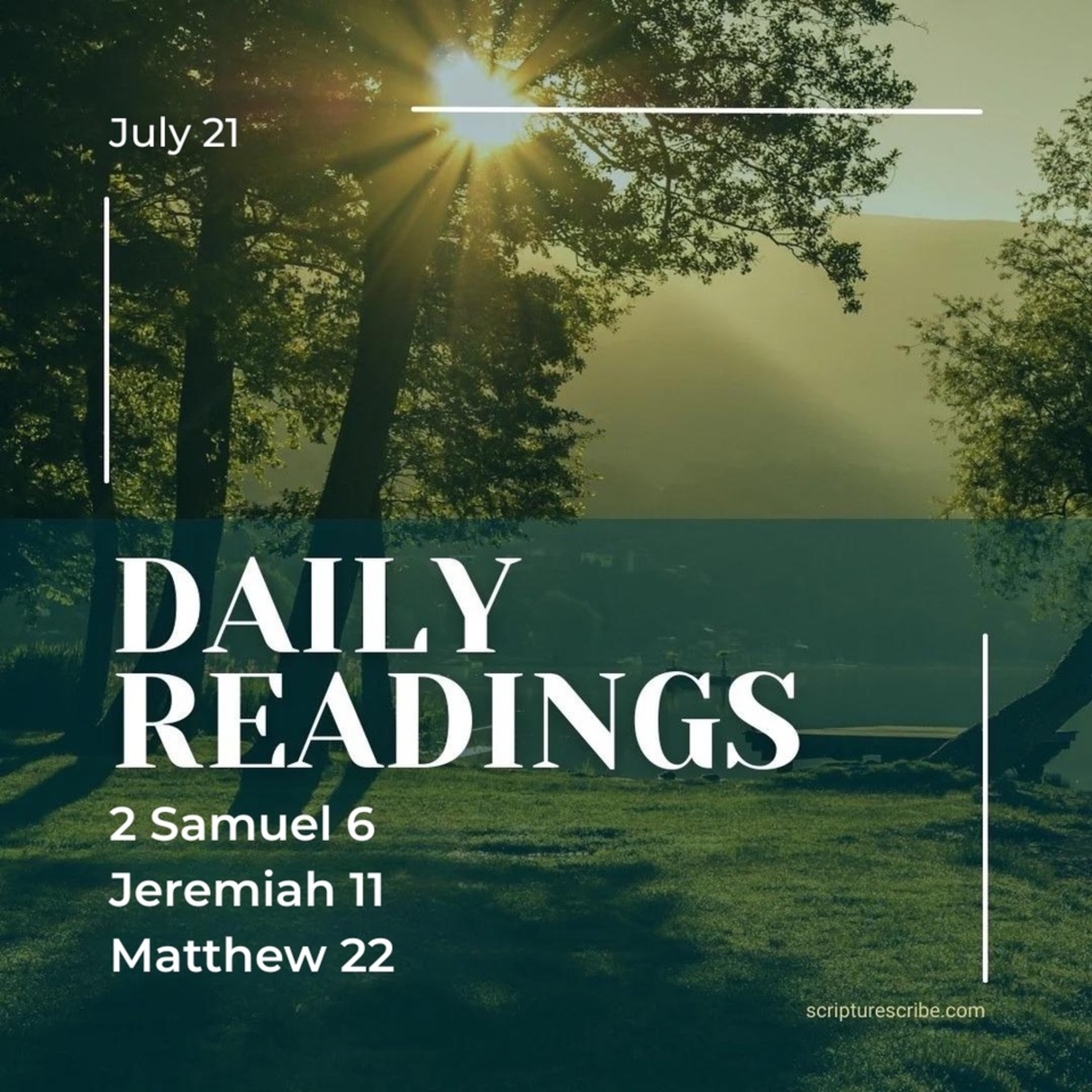

Thoughts on the Bible Readings (2 Samuel 6, Jeremiah 11 and Matthew 22) for July 21st
In Matthew 22 verses 1-14 we have the parable of the wedding feast of the Kingdom, to which we all have been invited through the Gospel. Our Omnipotent King has provided the only garment needed for admission; the sin covering raiment of His ever glorious and pre-eminent Son. We put this garment on when we believe the gospel, repent and are baptised. The disciple must then live a life of faithfulness for our Father to graciously give us a place in His kingdom. A sobering note concludes this parable: "Many are called, but few are chosen". Then follow four questions, each one from each of the three main political parties in Israel and then unanswered question from the Lord to each of these groups. These answers provided incontrovertible proof from the Scriptures that Jesus was the Promised Messiah. Verses 15-22 addresses the unpopular subject of taxation. The tax here was the Roman tax which was even more hated because it maintained Roman armies in Judah's land. The Land that had been given to them by the Almighty. Jesus was asked: "Should we pay this tax? Or, should we not pay it?" If our Lord said - yes - then he lost popularity with his people. If he said - no - then he could be accused of treason against Rome. His enemies were sure Jesus was trapped. However he completely turned the table on his adversaries. He masterfully not only answered the question but also used the occasion to direct all the hearers to their responsibilities to their God. Our Lord asked for a denarius. Whose image and superscription is on this coin? Caesar's they replied. Then give to Caesar what is his and to God what belongs to Him. We have been made in the image and likeness of God. So our lives, minds and actions belong to Him. Verses 23-33 say that the Sadducees came to Jesus with a trick question relating to resurrection. This sect accepted only the first five books of the Old Testament - called the Book of Moses. They mistakenly believed that resurrection was not supported by these Scriptures. However Jesus proves from Exodus 3 verses 15-17 that the raising of the dead is proven by Yahweh saying that He is the God of Abraham, and God is the God of the living, for all live unto Him - not He was - therefore Abraham has a future after his being restored to life in the future. Their failure, Jesus declared , was in not knowing the Scriptures nor the power of God (verse 29). Verses 34-38 Jesus is asked by Pharisee lawyer which is the greatest commandment in the Law of Moses. This topic was hotly debated among the religious leaders. Our Lord's answer is that it is very clear: You shall love the LORD your God with all your heart, and mind and strength - Deuteronomy 6 verses 4-5. Jesus says that the second is like unto it: You shall love your neighbour as yourself: Leviticus 19:18; 1 John 4:7-13. The chapter concludes proving Jesus himself to be the divine son of David (after the flesh), but God's Son of the Father's right hand, as attested. In verses 39-46 Jesus asks his critics whose son is Messiah, his Lord? Easy they thought! The Old Testament tells us that Messiah is the son of David. If so, says Jesus, why then does David in Psalm 110 call Messiah his Lord? This was an impossibility in Jewish reckoning for a son to be superior to his father. The only way for this to be true is for Jesus to be the Son of God as well as being the son of David: Psalm 110 verses -2; 2 Samuel 7 verses 2-16, 2 Samuel 23 verses 1-7; Micah 5 verses 2-5. His opponents were left dumbfounded.
More Episodes
All Episodes>>You may also like
Create Your Podcast In Minutes
- Full-featured podcast site
- Unlimited storage and bandwidth
- Comprehensive podcast stats
- Distribute to Apple Podcasts, Spotify, and more
- Make money with your podcast












